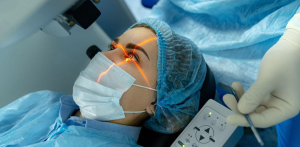Why Glass Lenses Are Great for Long Hours at the Computer

You might have experienced it yourself—one moment you’re powering through emails and spreadsheets, and the next, your eyes feel like they’ve been wrung out like a sponge. By mid-afternoon, even scrolling through social media feels like a chore.
For many people, glasses are already part of the solution. But what most don’t realise is that not all lenses are created equal. The material itself can make a huge difference to how your eyes cope with long days in front of a screen. Thankfully, there’s glass lenses.
With a clarity and sharpness that puts them in a league of their own, glass lenses quietly make life a whole lot easier for people who spend most of their waking hours staring at digital displays.
The Daily Strain: What Screens Do to Your Eyes
Spending hours in front of a computer doesn’t just tire your brain. It wears down your eyes, too. Digital eye strain is the name for that uncomfortable mix of dryness, gritty irritation, and the dull ache that creeps across your forehead after a long stretch at the desk.
Glare from the monitor, the constant shift between looking at emails, documents, and tiny notification pop-ups, plus the steady stream of blue light all contribute to the fatigue. It’s why so many people find themselves rubbing their eyes after a video meeting or reaching for painkillers after an afternoon of staring at small text.
Why Glass Lenses Stand Out
While glass lenses have been around for ages, they’ve never really gone out of style. The clarity they offer is topnotch—text looks sharper, details pop more crisply, and those small fonts on spreadsheets stop looking like a smudged mess. And unlike some plastics, glass doesn’t bend light the same way, which means your eyes don’t have to constantly adjust to minor distortions.
In addition, glass lenses are tough against scratches. Anyone who’s had to put up with a pair of lenses that look like they’ve been dragged across gravel knows how distracting that can be. With glass, you’re less likely to fuss over smudges or marks clouding your vision. Sure, they’re a bit heavier, but the payoff is sharper, steadier sight all day long.
The Science Bit: How Glass Handles Light
Glass lenses bend and transmit light differently to plastics. As a result, there’s less of what’s called chromatic aberration. That’s the faint colour fringing or blur that can sneak in around the edges of objects. It’s subtle, but your eyes pick up on it, and over time, they work harder to ‘fix’ the image.
With glass, the aberration is kept to a minimum. Imagine snapping a photo on your phone with a cheap lens, then taking the same shot with a professional camera lens. One looks slightly off, the other is pin-sharp. That’s the difference your eyes experience with glass lenses.
Instead of constantly correcting for distortions, your eyes can simply relax into the image. The sharper and more stable the view, the less effort required. When you’re spending six, eight, or even 10 hours at a desk, that reduction in effort is essential for comfort.
Everyday Benefits Beyond the Screen
The perks of glass lenses don’t stop once you log off. Think about everyday moments where clear, stable vision really matters. Picture yourself following a recipe in the kitchen: small text on a flour-dusted cookbook page is suddenly much easier to read without distortion. Or maybe it’s winding down with a favourite show—colours on the TV look richer, outlines sharper, so you’re not squinting through a haze.
Summary: Key Features That Make Glass Lenses Ideal for Screen Users
When you spend most of your day locked onto a computer, the finer details of your lenses start to matter more than you might think. Glass brings a set of standout features that make it especially well-suited for long sessions in front of a screen:
- Scratch resistance – Glass stays clearer for longer, so you’re not distracted by marks and micro-scratches building up.
- Superior clarity – The sharp detail means less squinting, which reduces both eye strain and forehead tension.
- Stable optics – Unlike some plastics, glass doesn’t flex or distort under heat or pressure, so your focus stays steady across the entire lens.
- Coating compatibility – Glass works beautifully with anti-reflective coatings, cutting down the screen glare that contributes to fatigue.
Don’t wait until the signs of fatigue force your hand. A small switch today could save you endless discomfort tomorrow. Like swapping out a blunt knife for a sharp one, glass lenses make the task easier, cleaner, and far more comfortable. Sometimes, the smartest fixes are the simplest.



